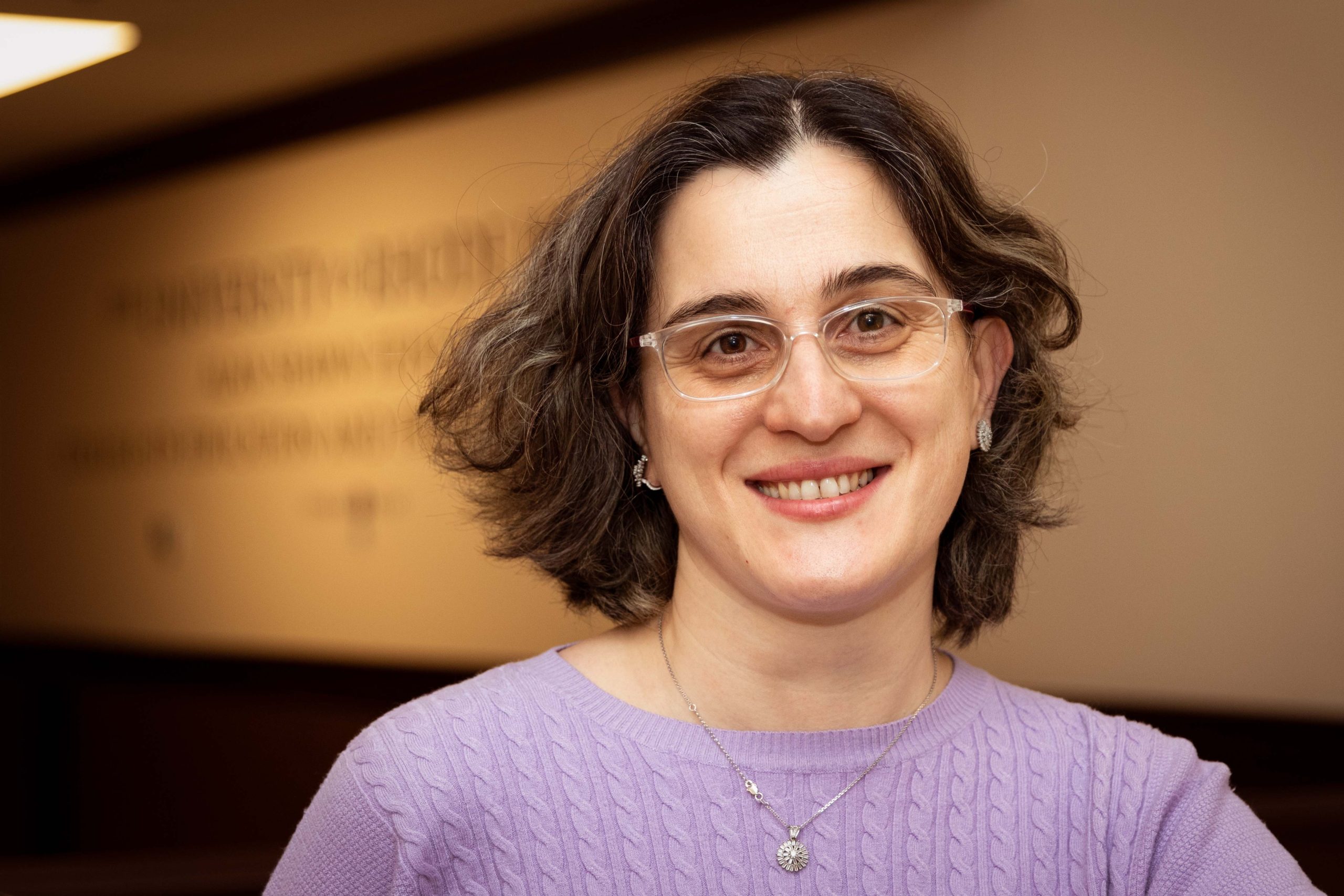URI professor Rabia Hos was recruited by the U.S. Department of Education to empower women in Lebanon through educating women in rural areas. PHOTO CREDIT: uri.edu
After a journey to America that began with a ticket and a lottery, University of Rhode Island professor Rabia Hos is now heading up a program led by the U.S. Department of State in Lebanon.
Hos’s program is aimed at empowering women in rural Lebanon. She is officially the project leader and is working with a team of six trainers and over 135 teachers and hundreds more students.
Hos was born in Turkey and spent most of her childhood there. Her and her families’ lives forever changed after her uncle entered her dad in a lottery to receive a green card to the U.S., which her father had ended up winning.
“There’s such a thing as a lottery still, where people enter into a lottery,” Hos said. “They’re drawn, and if they’re drawn they’re allowed to live in the U.S. and become a resident, and eventually, a citizen.”
Hos and her family moved to the U.S. while she was in eleventh grade. The experience of being a student speaking in a second language in a new country stuck with her, and she was even told by her advisor in high school not to bother applying for four-year colleges because she wasn’t proficient enough in English.
It was that experience that set her on the path to teaching English as a second language, a profession that she has done to this day.
“It was definitely a culture shock, and the first time I lived in a culture other than my own,” Hos said. “I grew up in a very small town and never interacted with people other than my surroundings. And then I was the other within the community.”
Hos went to college at the University of Rochester in New York, eventually earning a Ph.D. from the university.
She has also returned to Turkey with her family in the past, as she taught for four years at Zirve University in Gaziantep, Turkey. According to Hos, that experience allowed her to teach her children more about both the Turkish language and culture. Gaziantep is a city near the Syrian border, and Hos helped refugees resettle while studying their struggles and how to best help them.
Hos believes that her experiences in Turkey are a major reason why she was chosen to lead this program in nearby Lebanon, which also saw a major influx of Syrian refugees.
According to graduate assistant Chiara Deltito-Sharrott, Hos’s passion for education and motivation are what have made her special to all of the communities she’s been a part of.
“She’s really been a true mentor to me, and I think that’s fairly rare in academia,” Deltito-Sharrott said. “We meet on a weekly basis, and she’s always asking me what she can do for me, not just how I can tell her the ways that I can support her for the week, which is so appreciated and I think rare.”
Deltito-Sharrott is a first-year Ph.D. student working on charter schools and their finances. She and Hos started working together because of Hos’s work as a professor for the Ph.D. in education program, and since then, their relationship has grown.
“Rabia is not someone that lives in an ivory tower, in her own bubble,” Deltito-Sharrott said. “She’s really a leader in the state.”
The program Hos will be in charge of will be online-only at this point in time, although she says she does want to go to Lebanon and will try to travel there to learn more about the country.
She called the project one that is near and dear to her heart and is looking forward to helping educate and empower women.
“My mom was never educated,” Hos said. “She was not sent to school because she was a woman. So she really valued education and she always pushed me to go further and further.”

